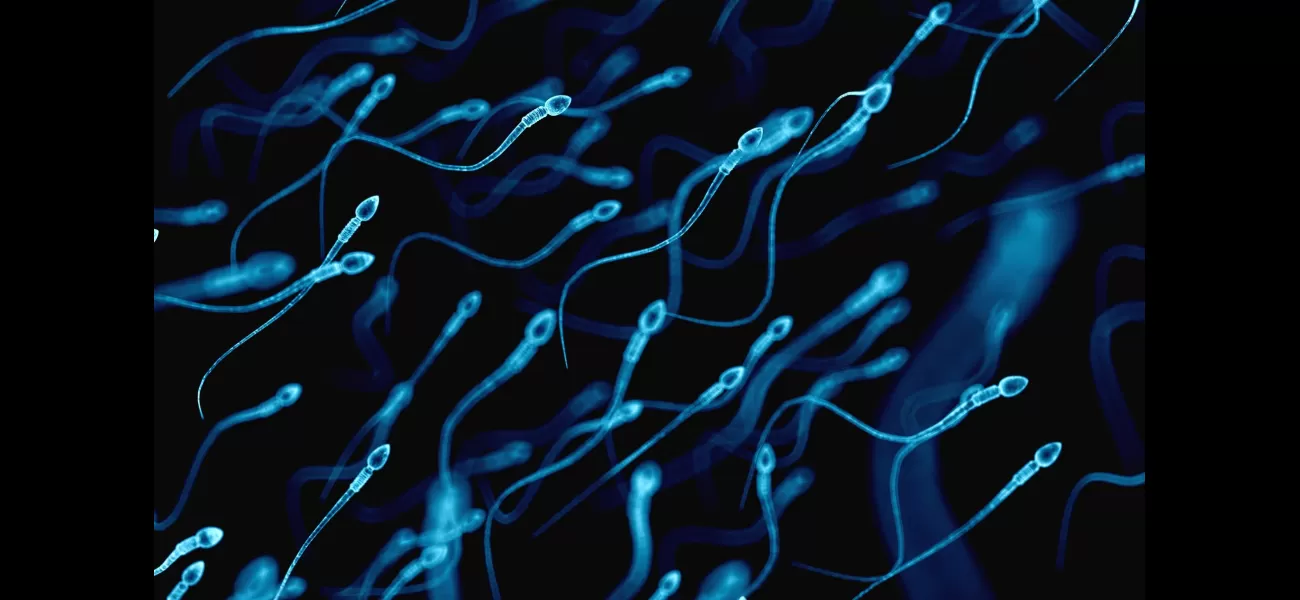Male fertility is declining and we may have discovered the reason behind it.
The situation affects the entire world.
March 30th 2024.

It's no secret that bacteria can cause a lot of problems, but did you know that they could also be affecting sperm? We've all heard of the gut microbiome and the skin microbiome, but there's also a lesser-known semen microbiome that could have a big impact on fertility. This was discovered by a team of researchers from the University of California, Los Angeles, who recently conducted a study on the subject.
For those unfamiliar, the microbiome refers to the collection of microbes (bacteria, fungi, and viruses) that can affect our health. While there have been numerous studies on the microbiomes found in our digestive system and on our skin, there has been less focus on the reproductive system, specifically in men. However, the UCLA team found that one particular microbe, Lactobacillus iners, can have a direct negative effect on sperm motility, which in turn can affect fertility.
Interestingly, this microbe is more commonly known as the cause of bacterial vaginosis in women and is the most commonly found bacteria in the female genital microbiome. Although the study, which was published in Scientific Reports, couldn't pinpoint the exact link, previous research has shown that Lactobacillus iners can produce L-lactic acid, which can lead to inflammation in the body. This inflammation may ultimately impact sperm motility.
It's worth noting that our bodies are teeming with bacteria, both inside and out. Along with the researchers from MicroGen Diagnostics, the UCLA team analyzed semen samples and found that three types of bacteria from the Pseudomonas group (a very common type of bacteria) were present in patients with both normal and abnormal sperm concentrations. However, they also discovered that two of these bacteria, Pseudomonas fluorescens and Pseudomonas stutzeri, were more prevalent in patients with abnormal sperm concentrations, while Pseudomonas putida was less common in these cases.
This finding highlights the fact that even closely-related microbes can have varying effects on our health. It also suggests that not all bacteria found in semen will necessarily have an impact on fertility. Lead author Dr. Vadim Osadchiy commented on the study, saying, "There is still much more to explore regarding the microbiome and its connection to male infertility. However, these findings provide valuable insights that can guide us in future investigations to better understand this relationship. Our research aligns with evidence from smaller studies and will pave the way for more comprehensive studies in the future."
Globally, fertility rates are declining, and it's believed that poor diet and lifestyle choices also play a role in men's health. With this in mind, it's essential to continue researching the connection between the microbiome and fertility to better understand and potentially address these issues. In fact, there are already some promising developments in the field, such as an AI sperm finder that could help couples struggling with infertility, and even the growth of human embryos in a lab without the need for sperm, eggs, or a womb. It's clear that there is much to learn about the microbiome and its impact on our health, and these findings open up new avenues for further exploration.
For those unfamiliar, the microbiome refers to the collection of microbes (bacteria, fungi, and viruses) that can affect our health. While there have been numerous studies on the microbiomes found in our digestive system and on our skin, there has been less focus on the reproductive system, specifically in men. However, the UCLA team found that one particular microbe, Lactobacillus iners, can have a direct negative effect on sperm motility, which in turn can affect fertility.
Interestingly, this microbe is more commonly known as the cause of bacterial vaginosis in women and is the most commonly found bacteria in the female genital microbiome. Although the study, which was published in Scientific Reports, couldn't pinpoint the exact link, previous research has shown that Lactobacillus iners can produce L-lactic acid, which can lead to inflammation in the body. This inflammation may ultimately impact sperm motility.
It's worth noting that our bodies are teeming with bacteria, both inside and out. Along with the researchers from MicroGen Diagnostics, the UCLA team analyzed semen samples and found that three types of bacteria from the Pseudomonas group (a very common type of bacteria) were present in patients with both normal and abnormal sperm concentrations. However, they also discovered that two of these bacteria, Pseudomonas fluorescens and Pseudomonas stutzeri, were more prevalent in patients with abnormal sperm concentrations, while Pseudomonas putida was less common in these cases.
This finding highlights the fact that even closely-related microbes can have varying effects on our health. It also suggests that not all bacteria found in semen will necessarily have an impact on fertility. Lead author Dr. Vadim Osadchiy commented on the study, saying, "There is still much more to explore regarding the microbiome and its connection to male infertility. However, these findings provide valuable insights that can guide us in future investigations to better understand this relationship. Our research aligns with evidence from smaller studies and will pave the way for more comprehensive studies in the future."
Globally, fertility rates are declining, and it's believed that poor diet and lifestyle choices also play a role in men's health. With this in mind, it's essential to continue researching the connection between the microbiome and fertility to better understand and potentially address these issues. In fact, there are already some promising developments in the field, such as an AI sperm finder that could help couples struggling with infertility, and even the growth of human embryos in a lab without the need for sperm, eggs, or a womb. It's clear that there is much to learn about the microbiome and its impact on our health, and these findings open up new avenues for further exploration.
[This article has been trending online recently and has been generated with AI. Your feed is customized.]
[Generative AI is experimental.]
0
0
Submit Comment





